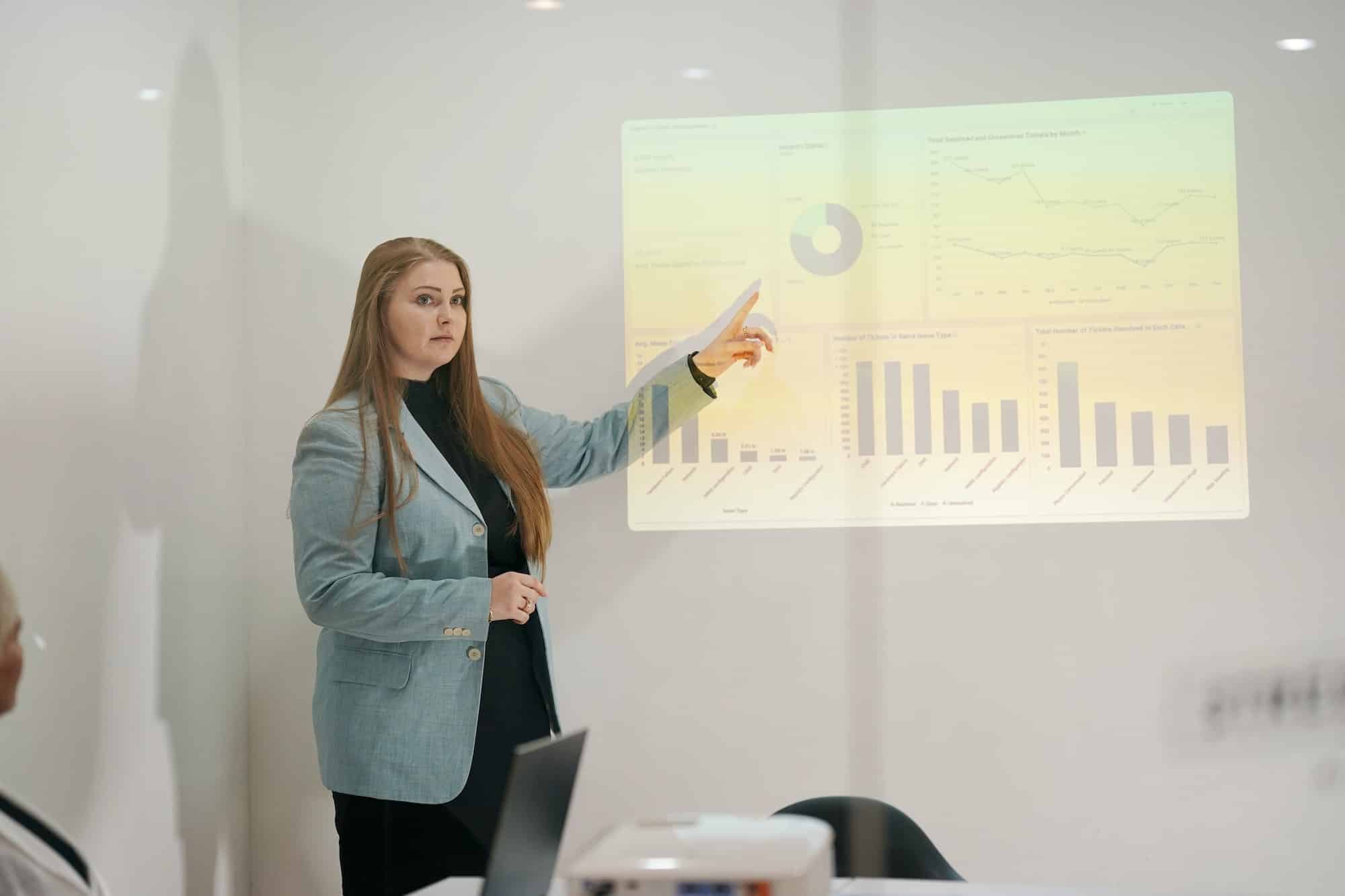How to Establish Your UK Start-up as a Thought Leader in the Circular Economy?

The circular economy is no longer just a buzzword. It has become a crucial factor in combating climate change and promoting sustainability in the global economy. The Ellen MacArthur Foundation (EMF) defines a circular economy as one that is based on the principles of designing out waste and pollution, keeping products and materials in use, and regenerating natural systems. In essence, a circular economy revolves around the idea of creating economic, natural, and social capital. If your UK-based start-up business is interested in becoming a thought leader in this transformative economic model, this guide aims to help you navigate the necessary steps.
Understanding and Embracing the Fundamentals of Circular Economy
The first step towards becoming a thought leader in the circular economy is understanding and embracing its core principles. Familiarise yourselves with the circular economy’s philosophy of reducing waste, reusing materials, and recycling products. This includes moving away from the traditional linear economy’s "take-make-dispose" model and towards a regenerative system that redefines growth.
A lire aussi : What Are the Emerging Trends in Ethical Investment for UK-Based Firms?
Start by exploring different concepts, such as the Cradle to Cradle design, which ensures that products can be fully recycled or composted, and performance economy, which is based on the idea of selling services rather than products. Other ideas include the sharing economy, which encourages the sharing of ownership to reduce waste.
The EMF provides a wealth of resources on the circular economy, including case studies and tools to help your business transition towards more sustainable practices. Use these resources to understand the different ways your business can contribute to a more sustainable future.
A voir aussi : What Are the Most Promising Renewable Energy Startups in the UK for 2023?
Redesigning Your Products for a Circular Economy
To establish your startup as a thought leader in the circular economy, it’s necessary to redesign your products to align with circular principles. This means considering the entire lifecycle of your product, from sourcing materials, through production and use, to disposal and recycling.
The product design stage is particularly important. You should consider using materials that are renewable, recyclable, and non-toxic. Aim to design products that can be easily disassembled for recycling or repurposing and that have a long lifespan. Another approach is to design products as services. This means customers pay for the service the product provides, rather than the physical object itself.
This shift towards circular design not only reduces waste and environmental impact but also creates new business opportunities. Companies that have successfully redesigned their products for the circular economy, such as Patagonia and IKEA, have seen increased customer loyalty and improved brand reputation.
Incorporating a Circular Business Model
Once you’ve grased the fundamentals and redesigned your products, the next tab in your journey is adopting a circular business model. This involves changing the way you make and sell your products to reflect the principles of the circular economy.
A circular business model may involve leasing products instead of selling them or offering repair and maintenance services to extend the lifespan of your products. It could also involve setting up a take-back program, where customers return their used products to be refurbished or recycled.
Adopting a circular business model encourages a stronger relationship with your customers, promotes brand loyalty, and can open new revenue streams. It also conveys a strong commitment to sustainability, which can help attract environmentally conscious consumers and partners.
Engaging in Thought Leadership Activities
Engaging in thought leadership activities is a great way to position your start-up as an authority in the circular economy. This includes sharing your insights and experiences through blogs, white papers, speaking engagements, webinars, and podcasts.
You could also consider partnering with academic institutions or think tanks to conduct research or develop case studies. This not only adds credibility to your business but also provides an opportunity to make a significant contribution to the circular economy discourse.
Advocating for Circular Policies
Finally, as a thought leader in the circular economy, you have a responsibility to advocate for policies that support this model. This could involve lobbying for regulations that encourage circular practices, such as extended producer responsibility (EPR) laws, or advocating for tax incentives for businesses that adopt circular economy practices.
By doing so, you help to create a supportive environment for the circular economy, encouraging other businesses to follow suit. This collective action is crucial in driving the shift towards a more sustainable and resilient economy.
In conclusion, establishing your UK startup as a thought leader in the circular economy requires a deep understanding of circular principles, redesigning your products, adopting a circular business model, and engaging in thought leadership activities. It also involves advocating for supportive policies. Despite the challenges, the rewards – from increased brand loyalty to new business opportunities – make it a worthy pursuit.
Leveraging Success Stories and Case Studies in Circular Economy
One of the most effective ways to establish your UK start-up as a thought leader in the circular economy is by learning from and leveraging the success stories and case studies of other organisations that have made the transition. These narratives provide powerful examples of the principles of the circular economy in action, offering valuable insights into the benefits and challenges of this new way of doing business.
The Ellen MacArthur Foundation (EMF) provides a wealth of such resources, spotlighting companies from diverse sectors that have adopted circular business models. These models involve a shift from the traditional linear "take-make-dispose" approach to a more regenerative one, focussing on designing out waste, keeping products and materials in use, and regenerating natural systems.
For instance, the chemical recycling company Loop Industries has developed a revolutionary process that decouples plastic from fossil fuels, allowing waste plastic to be recycled endlessly with no loss in quality. This kind of circular innovation showcases the potential of the circular economy to transform the way we manage our raw materials and address the challenge of climate change.
By studying these success stories and case studies, your organisation can gain a deeper understanding of how to apply the principles of the circular economy to your own operations. You can also use these narratives to communicate the value of the circular economy to your stakeholders and the wider public, helping to build your reputation as a thought leader in this field.
Strengthening Your Supply Chain through Circular Practices
Another key aspect of becoming a thought leader in the circular economy involves strengthening your supply chain through implementing circular practices. This includes working with your suppliers to ensure they also adhere to the principles of the circular economy, such as using renewable or recyclable materials, minimising waste, and optimising resource efficiency.
By adopting a circular supply chain, your organisation can create a more resilient business model that is better prepared for the fluctuations and uncertainties of the global economy. It can also help you to reduce your environmental footprint and demonstrate your commitment to sustainability circular.
For example, Patagonia, a clothing company renowned for its commitment to sustainability, has implemented a supply chain strategy that prioritises the use of recycled and organic materials. They also offer a repair service and take back worn-out items for recycling, further minimising waste.
In addition to making your operations more sustainable, this approach can also generate significant business benefits. According to a study by Accenture, companies that effectively integrate circular economy principles into their supply chains can achieve cost savings of up to 11%.
In conclusion, becoming a thought leader in the circular economy requires a holistic approach that encompasses all aspects of your operations, from product design and business models to supply chain management and external communications. By embracing the principles of the circular economy, your start-up can not only contribute to tackling the pressing challenge of climate change but also unlock new opportunities for growth and innovation. Leveraging success stories and case studies, and strengthening your supply chain through circular practices will position your organisation at the forefront of this transformative economic model. Remember, the journey to a circular economy is not a sprint but a marathon – but the rewards are well worth the effort.
